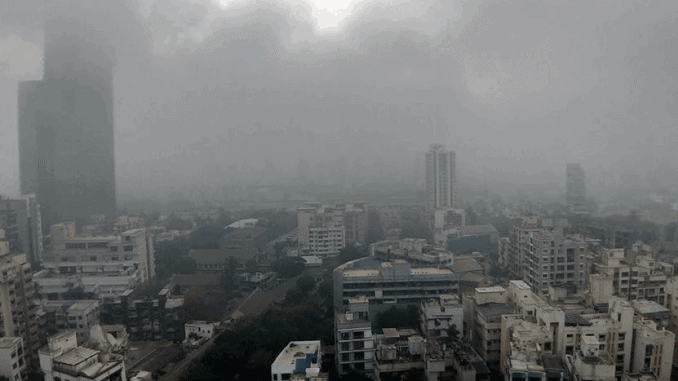Surge in COVID-19 cases
The Mumbai Metropolitan Region reported 1,075 new Covid cases on Wednesday—a 55% surge from 693 cases recorded on Tuesday, according to a report by The New Indian Express. Many wondered whether the higher cases are because of resumption of local train services. “The cases have increased but it cannot be attributed to local trains. We have increased the number of testing at airports and other destinations as a result of which the number of cases may increase,” a BMC official told The New Indian Express.
Source: The New Indian Express
Restrictions on travel from Kerala
After Goa, Gujarat, Rajasthan and Delhi, travellers from Kerala will also have to present a negative RT-PCR test before arriving to Mumbai. Kerala has the highest number of active Covid-19 cases in the country, followed by Maharashtra. Mumbai Mirror reported that the two states respectively account for 40% and 24% of all India cases. If the passenger doesn’t bring a test, they would be tested at the airport at their own cost. Similar conditions have been laid down for railway passengers.
Source: Mumbai Mirror
New Power Plant Funded by BMC
Brihanmumbai Municipal Corporation (BMC) has become the first civic body in the country to take a step towards hybrid energy generation, Hindustan Times reported. BMC’s standing committee on Monday approved ₹536 crore for a power plant project at Vaitarna Dam where 20-megawatt power will be generated from the hydro power plant, and an additional 80-megawatt power will be generated from the floating solar power plant on the dam. It can potentially save BMC’s ₹24 crore on electricity bills every year.
Source: Hindustan Times
Desalination project in Mumbai
Demand for water is increasing in Mumbai. Responding to this need, BMC is planning to setup a desalination project with a capacity of 200 million liters per day. This proposal has received an in principle approval from the standing committee, according to India Today. To setup the project, an eight acre government land has been identified at Manori near Malad in Mumbai. The estimated cost of the project with a capacity of 200 million liters per day is around Rs. 1600 crore and the cost of operation and maintenance for 20 years is around Rs. 1920 crore.
Source: India Today
Mumbai’s Air Quality is very poor

It is that time of the year. According to data collected by System of Air Quality Weather Forecasting and Research (SAFAR), Mumbai recorded an AQI of 322 on Friday morning, which is considered hazardous. The poor air quality is going to continue to persist according to SAFAR.
Source: Mumbai Mirror
High fuel prices might increase prices across the board
Fuel prices in Mumbai have risen sharply, reaching close to Rs 94.12 for petrol and Rs 84.63. per litre for diesel. With the constant increase in the fuel prices, transporters have called for an all-body meeting on Saturday to decide the course of action, according to the Hindustan Times. They have stated the constant increase in fuel prices is impacting the business of small transporters. The surge in fuel prices can lead to increase in prices of fruits and vegetables across the country.
Source: Hindustan Times
Housing lottery for BDD chawl redevelopment
Maharashtra Housing and Area Development Authority (MHADA) conducted a housing lottery draw for the tenants of the Bombay Development Directorate (BDD) chawls at NM Joshi Marg. “Total 272 tenants have been shifted in transit houses and a lottery will be held for these tenants. There are a total 700 tenants, of which 607 tenants have been proved eligible. It has signed a transit agreement with 314 tenants at the site,” The Free Press Journal reported. One of the oldest and largest settlements in the city, BDD chawl redevelopment has been long awaited.
[Compiled by Apekshita Varshney]